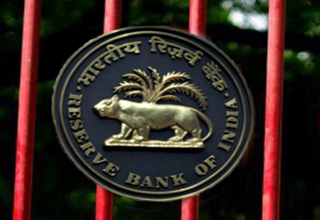RBI ombudsman asks banks not to levy pre-payment penalty on loans
Updated: Feb 01, 2014 12:58:09pm

These action points were mooted during the recent annual Banking Ombudsmen conference held yesterday which was inaugurated by RBI Governor Raghuram Rajan.
Director of the Central Board of RBI, Nachiket Mor who was a Guest Speaker at the event discussed the idea of suitability of products and services and other recommendations of the Committee on Comprehensive Financial Services for Small Businesses and Low Income Households chaired by him.
According to the RBI’s annual report of the Banking Ombudsman Scheme for 2012-13, IBA (Indian Banks Association) may issue instructions at the earliest to banks to discontinue levy of pre-payment penalty on all floating rate loans and ensure that fixed rate loans are truly fixed and are not referenced to any floating rate benchmark.
Further, RBI has asked banks to discontinue the practice of levying penalty on non-maintenance of minimum balance in ordinary savings bank account.
“Banks may discontinue the practice of levying penalty for non-maintenance of minimum balance in ordinary savings bank accounts and instead consider converting such accounts to Basic Savings Bank Deposit accounts,” the report said.
In order to improve the customer protection, RBI report asked “Banks to revisit the charges levied to ensure reasonableness, fairness and transparency in pricing.”
Currently, there is no cap on free transactions at own-bank ATMs, while customers can use other banks’ machines up to five times a month without any extra cost.
RBI said banks and IBA will formulate a policy on zero liability of customers in electronic banking transactions, where the bank is unable to establish customer-level negligence.
“The onus of proving customer-level negligence would be on the bank and when such negligence is not established beyond doubt, the benefit of such doubt may be given to the customer. IBA and banks should strive to put in place policies, systems and processes to secure electronic banking systems, protect customer’s interest to bring it ‘on a par’ with traditional delivery channels,” RBI said.
RBI also asked banks and the IBA to work together to roll out a media campaign to create awareness about products and banks’ commitment to Fair Practices Codes.
“The Depositor Education and Awareness Fund and banks’ own advertisement budget may be used for the purpose,” said RBI.
The Reserve Bank notified the Banking Ombudsman Scheme in 1995. The Scheme provides for a system of quick and inexpensive redress of customer grievances against banks. The Banking Ombudsman Scheme covers a wide range of complaints concerning deficiency in banking service. The Scheme also allows appeals from complainants and banks in respect of decisions made by the Banking Ombudsman. (KNN/SD)












